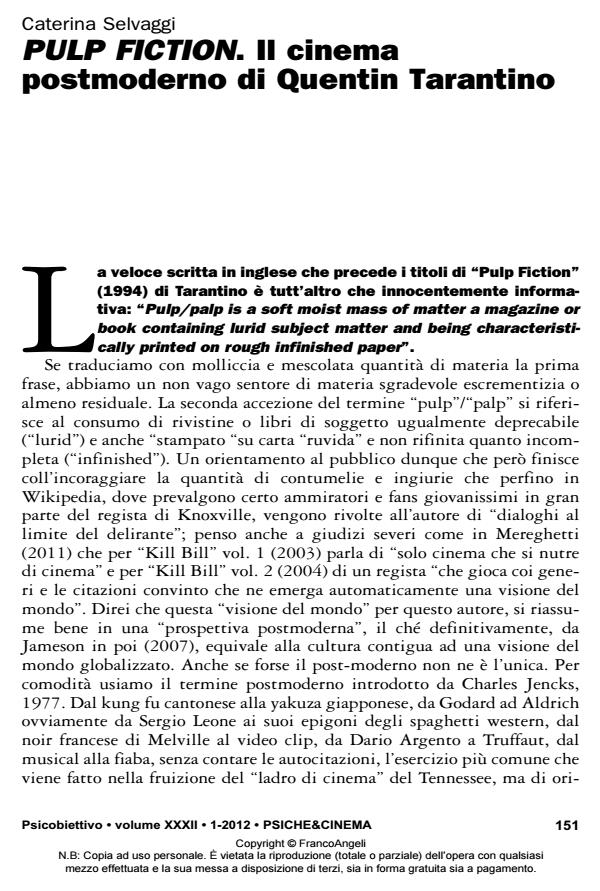Pulp Fiction. The Quentin Tarantino’s postmodern cinema
Journal title PSICOBIETTIVO
Author/s Caterina Selvaggi
Publishing Year 2012 Issue 2012/1
Language Italian Pages 22 P. 151-172 File size 163 KB
DOI 10.3280/PSOB2012-001011
DOI is like a bar code for intellectual property: to have more infomation
click here
Below, you can see the article first page
If you want to buy this article in PDF format, you can do it, following the instructions to buy download credits

FrancoAngeli is member of Publishers International Linking Association, Inc (PILA), a not-for-profit association which run the CrossRef service enabling links to and from online scholarly content.
The Author analyses the film "Pulp Fiction" of Tarantino which is, among the film directors, the main representative of the post-modern tendency: the systemic relationship is the protagonist in this film as well as in others of the same author: it put in evidence how the single character has no coherence and no consistency as an isolated individual. Postmodern style is one of the most expressive cultural aspect of the so called "globalization" that is the progressive interdependence of the systems in the planet. The film presents five interwoven stories putting in crisis the linear causality order in favour to a circular causality conception expressed by the film direction too. One of the film’s meaningful aspect is also the liking for the quotation of other texts and films of different cultures and times, (from thriller to western, to musical) that is not only the typical post-modern style, but expresses also, in Tarantino’s cinema, the condition of psychological and cultural instability of a globalized system.
Keywords: Systemic Interdependence; Relationship; Causality; Circularity; Postmodernism; Quotation; Instability.
Caterina Selvaggi, Pulp Fiction. Il cinema postmoderno di Quentin Tarantino in "PSICOBIETTIVO" 1/2012, pp 151-172, DOI: 10.3280/PSOB2012-001011